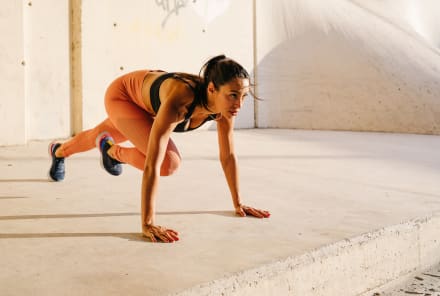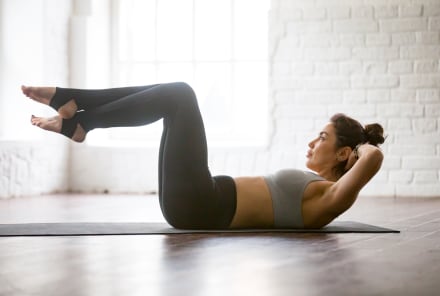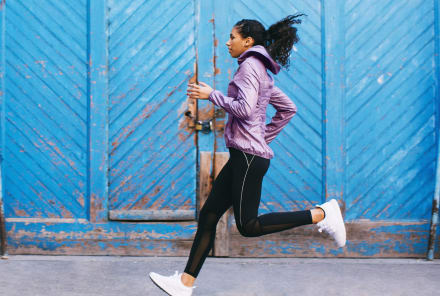Advertisement
This Is How An Olympic Bobsledder Eats, Exercises, and Stands Up to Sexism

Elana Meyers Taylor is a two-time Olympic medalist, but you won't find her breaking running records or tumbling through the air. Taylor's love of sports at a young age led her to, of all things, professional bobsledding. "My parents saw bobsled on TV and saw strong, powerful women doing it, so they suggested I try it. I did, and the rest is history."
Bobsleds weigh nearly 400 pounds, so in order to avoid injury and keep her energy up, Taylor has to be extremely particular about her diet, her recovery routine, and her mental stamina.
The food that keeps Taylor nourished.
Because bobsledding is a gravity sport, Taylor always has an eye on her weight—so she makes sure to eat nutrient-dense foods to make sure she's always energized. "I have to make sure I'm giving my body enough of what it needs without going overboard," explains Taylor. "I like to eat a lot of the same things all the time—I wake up and eat egg whites with veggies and oatmeal, and lunch and dinner are usually pretty similar—chicken, vegetables, and rice or sweet potatoes. I have protein shakes and smoothies during the day when I get hungry—but I keep it pretty simple. Lots of veggies and lean proteins."
The recovery method she swears by.
When Taylor isn't training, she's practicing yoga and meditation for mental and physical strength. "The biggest way yoga and meditation have helped me is to stay in the moment," she explains. "Driving a sled at 90 mph or more can be a lot on your brain. Giving your head the ability and space to be free and to just be in the present allows me to get the most out of each and every turn."
Another way she spends her off days? Nourishing her relationships. "I usually try not to do too much. I usually have to catch up on life stuff like errands and the like, but I try to spend time with my husband."
Overcoming physical challenges with mental strength.
A week before this year's world championship, Taylor started experiencing intense back spasms and wasn't sure whether she'd be able to compete. "I wasn't sure how I was going to be able to walk, let alone win a World Championship," she remembers. "When I finally was able to get out of bed, nothing was coming together on the track, and my driving was terrible. I spent the entire week wiping the tears but kept working—first to make sure I was physically OK—and then with my coaches, sports psychologist, and my husband to make sure I was mentally in a place where I could perform. It was a very challenging week, followed by a challenging race, but we pulled off the win."
Yes, she does deal with sexism.
Bobsledding is a male-dominated sport, and Taylor has experienced her fair share of sexism. "Racing in four-man races—I race with and against men—I've heard some of the worst things men could possibly say about women as a way to try to intimidate me. I've also been told on numerous occasions that I can't drive because I'm a woman."
Still, the negative words she hears from her male competitors only make her want to come back stronger. "Bobsled is a male-dominated sport, and dealing with that isn't always easy. However, I'm just going to go out there and work every day to show everyone that I am a fierce competitor regardless of my gender. I've got this."
Inspired by Taylor's story? Here's why this 71-year-old man is cycling across America.

Short On Time? Try This Personal Trainer's 5-Minute Full-Body Workout
Krista Stryker, NSCA-CPT

Short On Time? Try This Personal Trainer's 5-Minute Full-Body Workout
Krista Stryker, NSCA-CPT

Short On Time? Try This Personal Trainer's 5-Minute Full-Body Workout
Krista Stryker, NSCA-CPT

Short On Time? Try This Personal Trainer's 5-Minute Full-Body Workout
Krista Stryker, NSCA-CPT









